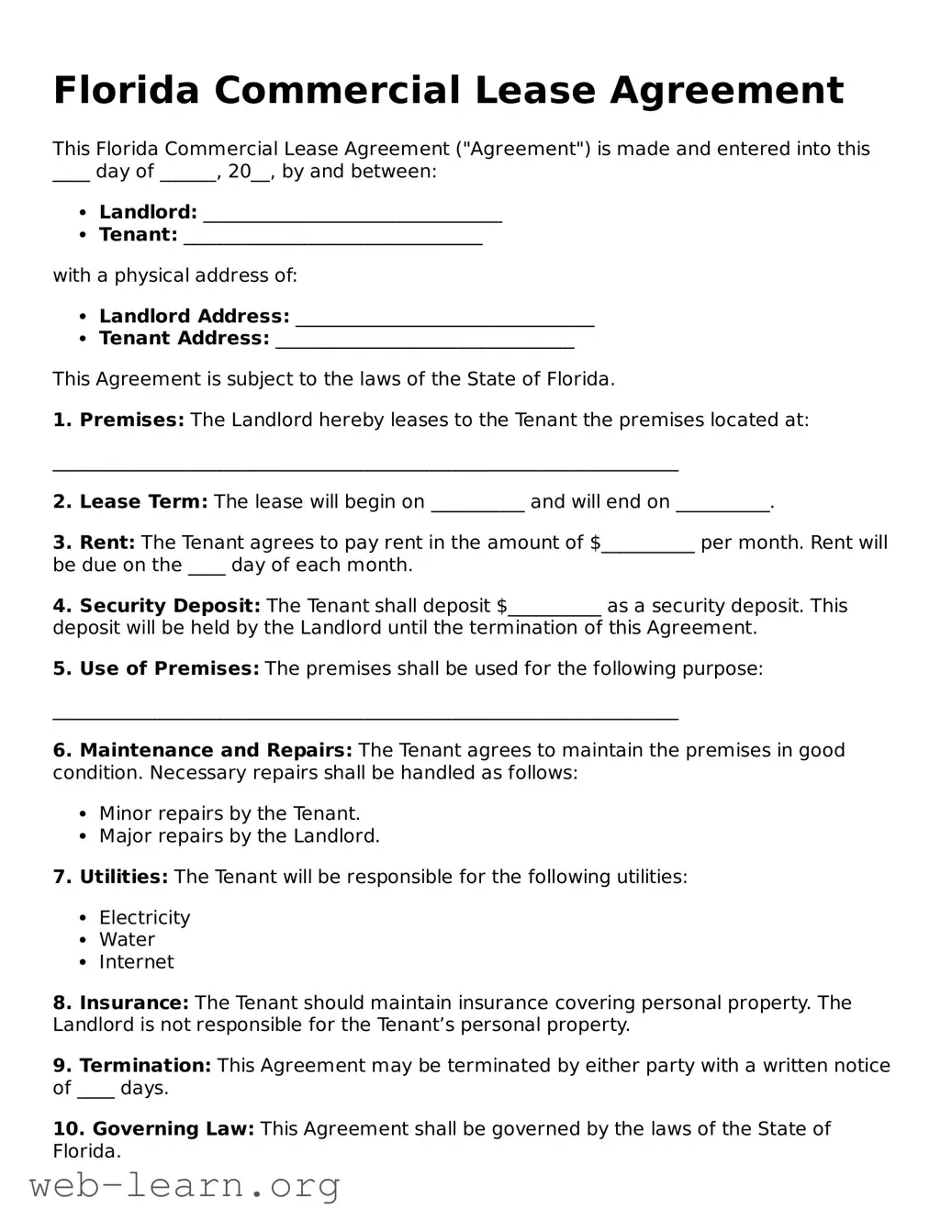Florida Commercial Lease Agreement
This Florida Commercial Lease Agreement ("Agreement") is made and entered into this ____ day of ______, 20__, by and between:
- Landlord: ________________________________
- Tenant: ________________________________
with a physical address of:
- Landlord Address: ________________________________
- Tenant Address: ________________________________
This Agreement is subject to the laws of the State of Florida.
1. Premises: The Landlord hereby leases to the Tenant the premises located at:
___________________________________________________________________
2. Lease Term: The lease will begin on __________ and will end on __________.
3. Rent: The Tenant agrees to pay rent in the amount of $__________ per month. Rent will be due on the ____ day of each month.
4. Security Deposit: The Tenant shall deposit $__________ as a security deposit. This deposit will be held by the Landlord until the termination of this Agreement.
5. Use of Premises: The premises shall be used for the following purpose:
___________________________________________________________________
6. Maintenance and Repairs: The Tenant agrees to maintain the premises in good condition. Necessary repairs shall be handled as follows:
- Minor repairs by the Tenant.
- Major repairs by the Landlord.
7. Utilities: The Tenant will be responsible for the following utilities:
- Electricity
- Water
- Internet
8. Insurance: The Tenant should maintain insurance covering personal property. The Landlord is not responsible for the Tenant’s personal property.
9. Termination: This Agreement may be terminated by either party with a written notice of ____ days.
10. Governing Law: This Agreement shall be governed by the laws of the State of Florida.
IN WITNESS WHEREOF, the parties hereto have executed this Florida Commercial Lease Agreement on the day and year first above written.
Landlord Signature: ________________________________ Date: __________
Tenant Signature: ________________________________ Date: __________
